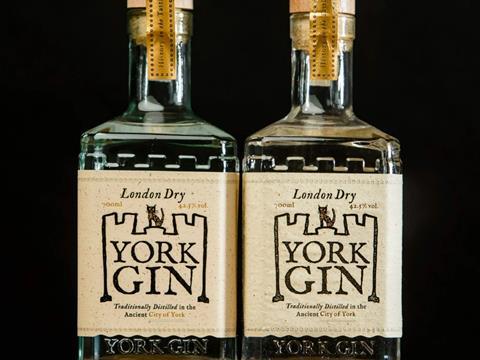
Glass packaging company Verallia has revealed its new Vista bottle crafted from 100% post-consumer recycled (PCR) glass, said to consume 40% less energy during production compared to virgin glass.
The company says its Vista bottle offers the flexibility to create bespoke designs with the same quality premium look and feel, comprised entirely of recycled glass. It adds that using PCR glass means its glassmakers can craft the bottle without the need for raw materials, conserving natural resources.
Verallia states that as recycled glass has a lower melting point, it consumes 40% less energy than producing virgin glass. It also emits less greenhouse gases, such as carbon dioxide and nitrogen oxide, as well as using less water in production.
According to Verallia, spirit brand York Gin is the ‘first’ gin to adopt 100% recycled UK-made glass into its bottles. The brand partnered with Verallia to re-design its packaging, transitioning from extra white flint produced solely from virgin glass to Vista, and decreasing its environmental footprint.
In related news, Ardagh Glass Packaging Europe (AGP Europe) recently launched a new 300g lightweight glass wine bottle, seeking to combine ‘ultra-lightweight design’ with high strength and premium shelf appeal. The 300g 75cl bottle - said to be ideal for still wines - is designed to perform on high-speed filling lines, withstand supply chain handling and deliver a significant reduction in bottle weight.
The same month, Close the Glass Loop published data indicating the EU’s average recycling collection rate for glass packaging has continued to progress, reaching 80.8% in 2023 with more than 12 million tonnes collected. The platform says this performance reflects well-established practices in favour of separate glass packaging collection for households and hospitality businesses, and a strong network of operators ensuring collected glass is effectively recycled and returned to glass packaging manufacturing plants in Europe.
If you liked this story, you might also enjoy:
The ultimate guide to the Packaging and Packaging Waste Regulation in 2025
How are the top brands progressing on packaging sustainability?
Everything you need to know about global packaging sustainability regulation in 2025
The key to increasing the use of reusable packaging in supermarkets














No comments yet